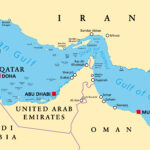Picture this. It is a bright, sunny day and Joe and Mary decide to take the family to the community art fair. There Joe is, corn dog in hand, strolling through works by emerging artists, traveling exhibitors and his Aunt Edna. Then suddenly, a strong wind blows through the picturesque street, knocks a sculpture over, and it knocks Joe on the head, leaving him with a concussion.
The hospital bills for Joe’s trip to the emergency room, routine CAT scan and follow up meds come to a pretty penny. So, who’s footing the bill?
While responsibility for accidents at a special event can often be complicated to assign, one thing is for sure: The first stop is always the event organizer. No matter how careful planners are preparing for unforeseen circumstances, there is always at least one surprise. When something goes wrong, someone has to take responsibility and, in that person is the event organizer.
Due to their very nature, with the number of details, people and “x” factors involved, special events require special coverage.
In its simplest definition, special event coverage is general liability insurance for injury to spectators or attendees at a wide variety of social, civic and club events. Those include, but are not limited to, concerts, shows, conventions, pageants, sporting events, tournaments, Christmas tree lots, pumpkin patches and the sometimes ill-fated art fair.
With such a myriad of events, the risk of injury to a spectator or property can be significant. As such, it is important for the sponsor or organizer, whether a church, civic group or a booking manager, to protect itself by obtaining liability insurance to cover any legal liability for injury to a spectator or property at their special event. (Injury to a participant is generally excluded).
What an agent should know
Any organizer or sponsor of an event needs special event liability coverage. Whether the event has spectators in the truest sense, such as at a softball game, or falls in a gray area, such as customers at a pumpkin patch or bingo game, the organizer needs this coverage. If the event organizer is renting space or land, the landowner would certainly require the organizer to carry its own insurance so that the landlord is protected from liability.
When in doubt about whether an event needs insurance, an agent should ask two questions: Did my client/their company organize it? Will there be people there? If the answer to both questions is yes, chances are the organizers need the policy.
Someone organizing a block party may not think insurance is necessary. It’s all neighbors; it’s all good fun. However, even if the city doesn’t require it, the organizer needs to protect himself. In one case, a man organized a block party. Although the event was happening out on the street, he had a pool and allowed the neighborhood kids to swim in it. Because part of the event was on his property, he was liable.
While there are quite a few carriers in the excess, surplus and specialty market that write special events insurance, a good policy, especially for tough-to-insure events (like large concerts, think: Rolling Stones, with alcohol and thousands of spectators) can still be a challenge to find.
Finding the right Special Events policy
When looking for a good policy, agents should look for:
• Flexible minimum earned premium percentage;
• Ability to provide coverage for set up and tear down;
• Medical payments coverage;
• Flexibility on minimum premiums; and
• Rate based on attendance versus receipts.
It is also important to remember that companies use a lot of independently developed forms in writing this coverage, so agents should pay close attention to the fine print in the policy wording to ensure they are getting their clients the best coverage.
Policy highlights:
Terms — Policies can be written for lengths from one day to one year. The annual policy can be written to cover event sponsors for various events taking place throughout the year. Pricing and premium basis may vary due to peculiarities of event.
Exposures: This is primarily a premises exposure for injury to people attending a special event. Additional exposures can include property damage liability; medical payments; personal injury (i.e., libel/slander/defamation, etc.); and advertising injury (i.e., copyright infringement, misappropriation of advertising slogans).
Minimum Premium: Generally can go as low as $350 depending on the specifics of the event.
Minimum Limits: Generally $300,000 per occurrence, $600,000 annual aggregate.
Maximum Limits: Generally $5 million.
Deductible: Average $500 (Sometimes credit for higher deductibles is available.)
Pricing Issues: Other items that factor into final price include location of the event; use of special effects; time of year; admission charge; and any security provisions.
Additional considerations:
• Host liquor for special events is generally excluded.
• The underwriter will probably need a copy of schedule/advertising brochures or Internet material (if any) for the event when submitting the application.
• Loss runs are usually required for events that have been held in the past. They should be currently valued if there have been losses.
• Participant coverage is generally excluded.
• Minimum premiums vary depending on the nature of the event. Be sure to discuss the specific parameters of each individual event in detail with the underwriter.
Chris Behymer is vice president, casualty underwriting for Markel Southwest Underwriters. E-mail: cbehymer@markelcorp.com. Phone: 480-905-5059.
Was this article valuable?
Here are more articles you may enjoy.


 Florida Appeals Court Pulls the Plug on Physician Dispensing in Workers’ Comp
Florida Appeals Court Pulls the Plug on Physician Dispensing in Workers’ Comp  Ford Recalling 4.3 Million US Vehicles Over Software Issue
Ford Recalling 4.3 Million US Vehicles Over Software Issue  Mexico’s Cartel Violence Could Hit Economy and Insurance Segment: AM Best
Mexico’s Cartel Violence Could Hit Economy and Insurance Segment: AM Best  Marine Insurers Cancel War Risk Cover as Iran Conflict Escalates
Marine Insurers Cancel War Risk Cover as Iran Conflict Escalates 


